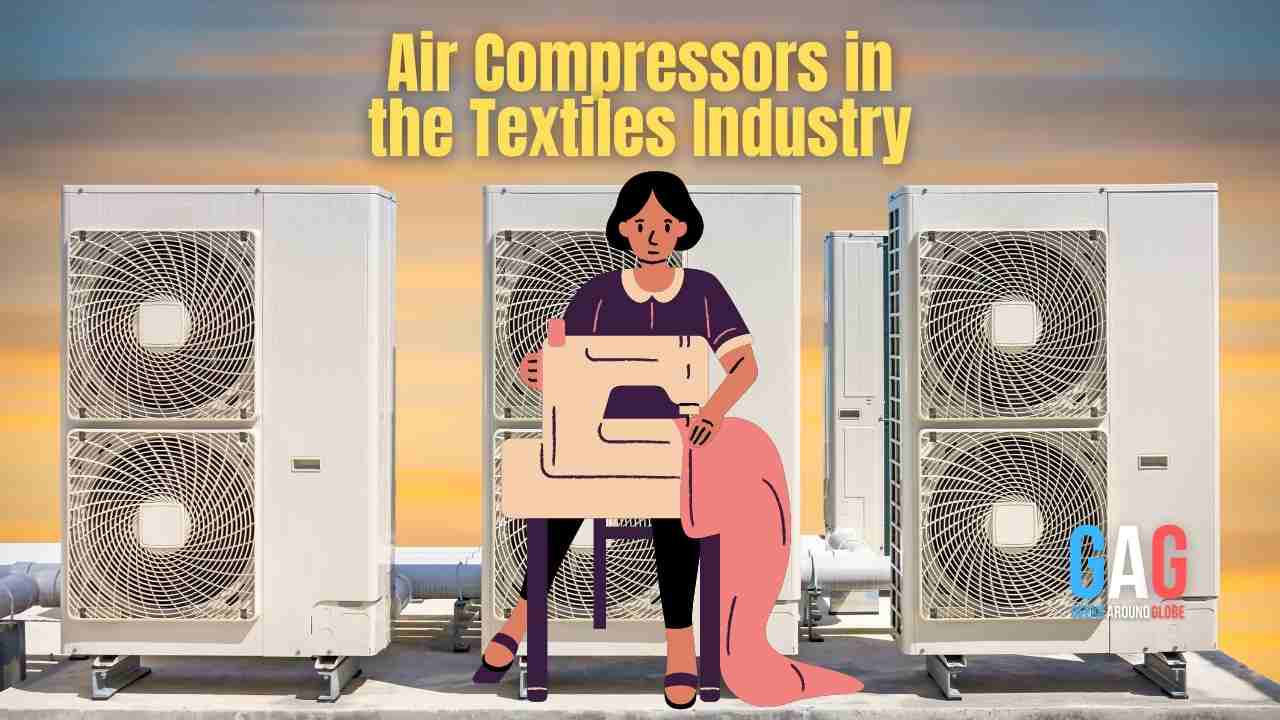Over the years, many industries have come to rely on air compressors to power their operations. The textiles industry is no different. UK consumers spend approximately £45bn on textiles and clothing, and in 2020, online retail sales increased to an all-time high at 31%.
As the textiles industry continues to grow, so too will the demand for air compressors. Recent developments in oil-free air compressors with newer technology are gaining popularity in the textile industry because of their many benefits.
They provide the air pressure that is necessary for powering textile machines and ensures fabric quality. Without air compressors, it would be impossible to produce textiles on a large scale. Here’s a look at why air compressors are so important in the textiles industry:
1. Ensure smooth operation of machinery by providing adequate air pressure
In order to understand how an air compressor works, it is first necessary to understand what air pressure is. Air pressure is the force exerted by the weight of air molecules.
It is created when those molecules are compressed into a smaller space. The amount of air pressure present in an area can be measured in pounds per square inch (psi).
Compressors work by reducing the volume of air, thereby increasing the air pressure. This increase in pressure can be used to power many kinds of machinery, from impact wrenches to air conditioners.
In the textile industry, compressors are used to provide the necessary air pressure for weaving and spinning machines.
By providing a steady stream of compressed air, compressors allow these machines to operate at high speeds without jamming. As a result, compressors play a vital role in ensuring the smooth operation of the textile industry.
2. Improved airjet Looms and reduced downtime
In the textile industry, air compressors are used to power airjet looms. These looms use high-pressure jets of air to weave fabric. The benefits of using air compressors to power these looms include increased speed and efficiency, as well as improved fabric quality.
While air compressors come in a variety of different shapes and sizes, they all work by using a pump to compress air and store it in a tank. This stored energy can then be used to power a variety of different equipment, making it an essential piece of machinery in any factory.
Compressed air can be highly versatile in nature, enabling industrial operations to be more effective with its high productivity and safety. Though sometimes it can be a struggle to measure the cost of cubic feet per minute (cfm), and it should be acknowledged that compressed air consumes up to 3-4 times more power compared to electrical energy.
3. Cost-Effective Solution
Air compressors are a cost-effective solution for the textile industry. They are less expensive to operate than other types of machinery, and they require less maintenance and added texture, which helps to improve the quality of the fabric.
In addition, air compressors are a more environmentally friendly option than other types of machinery, as they can reduce the amount of emissions generated.
Conclusion
The textile industry is one that has been around for centuries, and it’s still going strong today. One of the most important tools in the textile industry is the air compressor.
Air compressors play a vital role in this industry by helping to power machines and equipment used in the production of textiles. Without them, the industry could not function efficiently.







